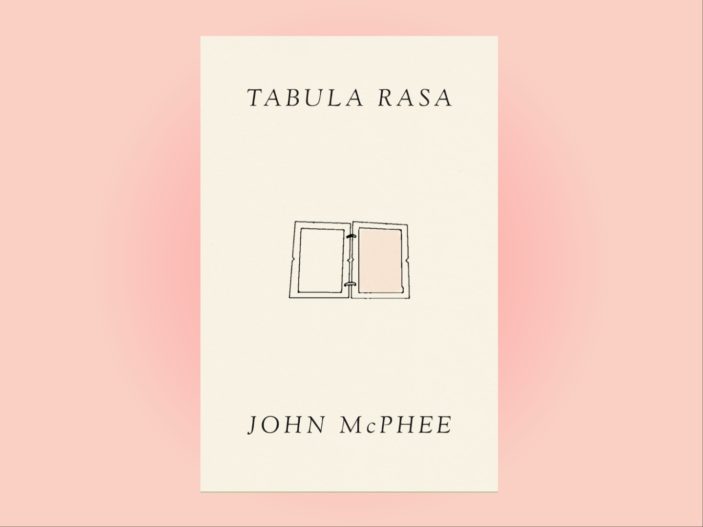
If you’re not familiar with John McPhee, he’s considered “a pioneer of creative nonfiction” and won the Pulitzer Prize for his 1999 book Annals of the Former World. That book is the complete collection of two decades worth of road trips he took with eminent geologists, through which he tells the history of North America’s geological landscapes. This book, Tabula Rasa, comes at the tail end of his illustrious career as a sort of reverse-autobiography. But, instead of compiling the highlights and heights, he’s assembled all the off cuts, and unwritten ideas, and moments in between.
Early into the book is an anecdote about Thornton Wilder, which serves as the primer for Tabula Rasa. Wilder had taken on the gargantuan task of cataloguing the plays of one of the world’s most prolific playwrights, Lope de Vega. Why?
“I am eighty-eight years old at this writing and I know that those four hundred and thirty-one plays were serving to extend Thornton Wilder’s life. Reading them and cataloguing them was something to do, and do, and do. It beat dying. It was a project meant not to end. I could use one of my own. And why not? With the same ulterior motive, I could undertake to describe in capsule form the many writing projects that I have conceived and seriously planned across the years but have never written.
By the way, did you ever write about Extremadura? No, but I’m thinking about it.”
As said so pleasantly above, Tabula Rasa is a similar ‘old man project’. It’s mostly disorganised and unfocused, and yet charming nonetheless. He tells of this town in Spain, Extremadura, where he listened to Spanish poetry by the river, watched storks in the church towers, and moves on to discussing Cortés the conquistador; then on to the projects of his Princeton students during the Pandemic; and on to The Airplane That Crashed in the Woods.
He cites Mark Twain’s memoirs for this approach – “Just jump in anywhere, tell whatever comes to mind from any era. If something distracts your memory and seems more interesting at the moment, interrupt the first story and launch into the new one.” And, somehow this works well, perhaps due to the strength of the prose, the voice of the writer, and the generally interesting anecdotes.
In fact, it works better than well. This messy selection of tales is splendid. It becomes like the ramblings of an old friend or relative, while being surprisingly engaging.
It’s truly a worthy collection of the stories that hadn’t had the time to be told, resisted and strained against conventional telling, or were left on the cutting room floor.
![]()
![]()
![]()
![]()
![]()
FOUR STARS (OUT OF FIVE)
Tabula Rasa by John McPhee is available now through Farrar Straus Giroux. Grab yourself a copy from Booktopia HERE.
